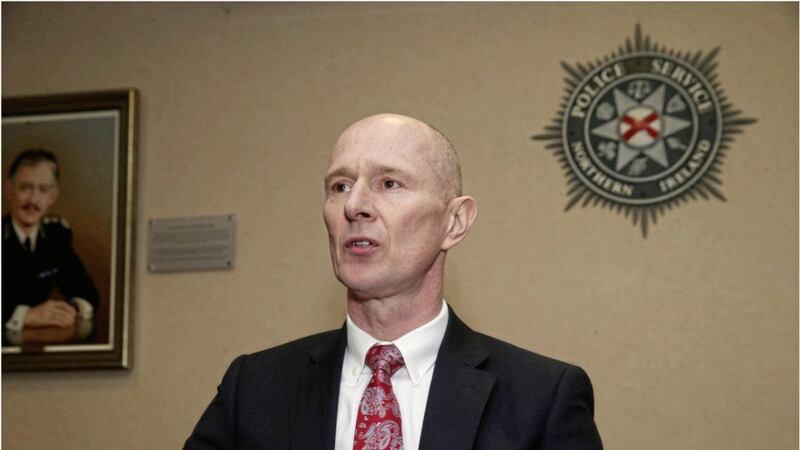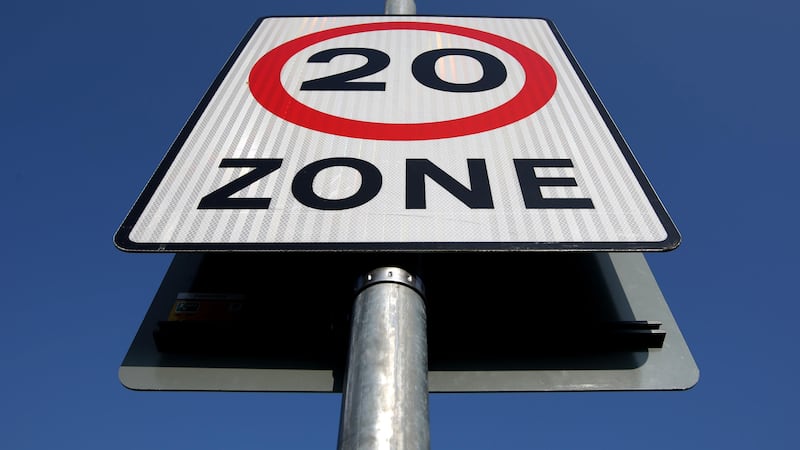POLICE say the prescription medication epidemic being blamed for a series of deaths is particular to Northern Ireland.
Counterfeit prescription drugs, manufactured in Asia and ordered online, are flooding the north and being sold for as little as 50p per tablet.
Poly drug use - a mixture of multiple substances - has been appearing more commonly on death certificates, with drug-related deaths recorded by the coroner in Northern Ireland having almost doubled in the last two years.
There have been a spate of deaths since the start of this year, the majority believed to have been caused by prescription medication mixed with other illegal substances and alcohol.
Last month 16-year-old Chloe Hutchings died of a suspected overdose in an apartment in Belfast city centre where two other men were also taken to hospital.
She was one of four people to die suddenly in the city within 24 hours, with police saying drugs were believed to have been a factor in at least two of the deaths, as well as another death in Belfast three days earlier.
In December last year coroner Joe McCrisken, speaking at the inquest of west Belfast man Aaron Strong, called for the prescription painkiller Tramadol to be reclassified as a Class A drug.
The 18-year-old died in April 2016 after taking several different prescription drugs, including Tramadol.
The medication is one of the drugs being smuggled into Northern Ireland from Asia and currently a Class C drug.
Despite the tablets being sold in bags of 10 for as little as £5, such is the volume of pills being consumed that those importing the drugs can make thousands of pounds per week.
Speaking to The Irish News, Detective Inspector Andy Dunlop said a batch of 20,000 tablets in parts of Belfast could be sold on in less than a day.
While over-prescribing of some pain medication has been blamed for an increase in addicts, the majority of pills for sale are purchased online and then smuggled into Northern Ireland illegally through the postal system.
"A ball park of 20,000 pills a week are being seized," said Mr Dunlop.
"We're are working with partners in all the various courier companies and with the National Crime Agency and receiving notifications of seizures every day.
"Pills are posted in after ordering them off the internet, and this is the ordinary internet, you don't even need to go near the dark net.
"Poly drug use, a mix of drugs, is generally what the pathologist, the coroner ultimately is seeing and what is cited on the death certificates of those unfortunate people.
"(It is) a number of different types of drugs, normally including the usual suspects, Diazepam, Tamazepam, Lyrica, Tramadol, but not always. We are aware that there is cannabis, cocaine and ecstasy also on death certificates as well as alcohol.
"It's difficult to deal with this issue, and we are very much aware from the law enforcement side of it what we do isn't going to solve it.
"That is why we are asking and have been asking our partner agencies to help deal with this.
"Our primary focus is to keep people safe and prevent people from dying by seizing those drugs coming in from India and Pakistan."
As part of Operation Torus, police seized more than £793,000 worth of drugs, conducted 389 searches resulting in 92 arrests and have also charged or reported 74 people to the Public Prosecution Service.
Police have said they still rely on information from the public about those supplying the drugs.
"We've got dozens of crime gangs in Northern Ireland on our law enforcement radar, so if we are working on a crime gang we have law enforcement methods that we use to stop the importation of any drugs," said Mr Dunlop.
"But the border force wing of the National Crime Agency at Coventry and Birmingham do their job by screening parcels.
"I have personally briefed them and spoken with the bosses over there to tell them about the drugs market here in Northern Ireland because this issue with the drugs it's a big issue here but not so much there, and the market over here is completely different from the drugs market overall."





